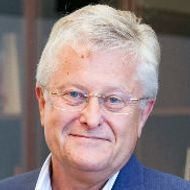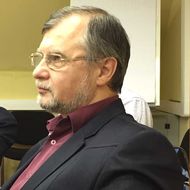- A
- A
- A
- ABC
- ABC
- ABC
- А
- А
- А
- А
- А
- HSE University
- Faculties
- Faculty of Social Sciences
- School of Political Science
- News
- Democratic Elections as Means of Anti-Corruption Measures: The Slovenian Phenomenon
3 Krivokolenny Pereulok, Moscow, 103070.
Phones:
8 (495) 772-95-90 *22833,
8 (495) 772-95-90 *22448
Fax: 8 (495) 772-95-90 *12556
Email: politfac@hse.ru
Washington: Free Russia, 2018.
Petrov N., Hale H. E., Lipman M.
Russian Politics. 2019. Vol. 4. No. 2. P. 168-195.
In bk.: Oxford Research Encyclopedia of Politics (Living Edition). Oxford University Press. P. 1-20.
Sorokina A., Maximenkova M., Kasamara V.
Political Science. PS. Высшая школа экономики, 2019. No. 71.

Democratic Elections as Means of Anti-Corruption Measures: The Slovenian Phenomenon
The article has been published on the Anti-Corruption Research Network website of the international organization Transparency International.
In this article, the authors focus on the phenomenon in Slovenia, in which the country demonstrates one of the best results of implementing anti-corruption measures among all post-Soviet governments.
The research shows that the primary factor that sets Slovenia apart was the filtering out of the government authorities that could have potentially carried with them corrupt relationships or practices from the old Soviet regime and instead, replacing them with representatives from nationally-oriented elites. The second factor was following GRECO recommendations to take institutional and legal anti-corruption measures during the process of European Union accession.
- About
- About
- Key Figures & Facts
- Sustainability at HSE University
- Faculties & Departments
- International Partnerships
- Faculty & Staff
- HSE Buildings
- Public Enquiries
- Studies
- Admissions
- Programme Catalogue
- Undergraduate
- Graduate
- Exchange Programmes
- Summer Schools
- Semester in Moscow
- Business Internship
-
https://elearning.hse.ru/en/mooc/
Massive Open Online Courses
-
https://www.hse.ru/en/visual/
HSE Site for the Visually Impaired
-
http://5top100.com/
Russian Academic Excellence Project 5-100
- © HSE University 1993–2025 Contacts Copyright Privacy Policy Site Map
- Edit

